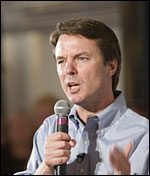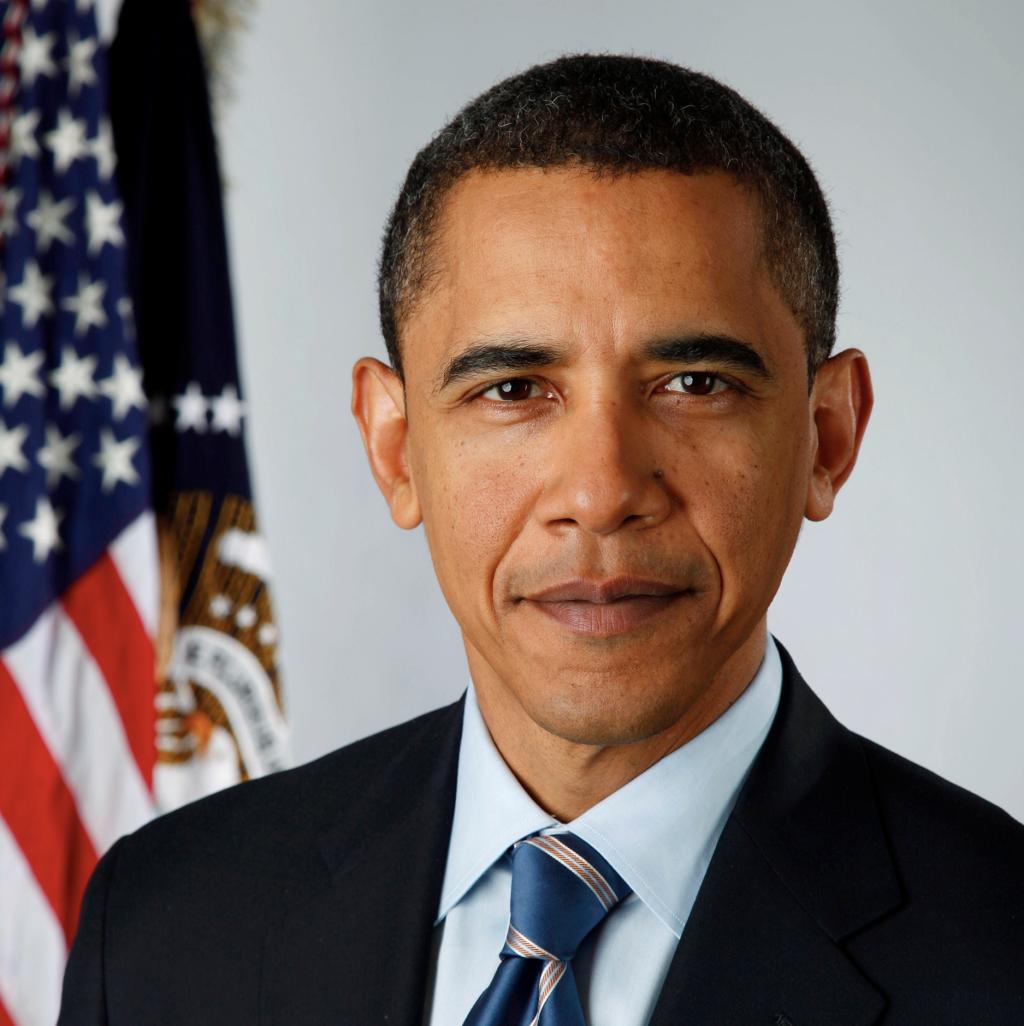Climate Politics
All Stories
-
A look at John Edwards’ environmental platform and record
Update: John Edwards dropped out of the presidential race on Jan. 30, 2008. During his single term representing North Carolina in the U.S. Senate, John Edwards received a middling 63 percent rating from the League of Conservation Voters — a score lower than might have been expected because he missed a number of key votes […]
-
Good on ’em
I just got this email from MoveOn.org: Dear MoveOn member, Did you know the U.S. right now gets only 2% of our electricity from clean energy sources like solar and wind? We have the technology. We know people want it. We just haven’t had the political will. But Congress is voting this week on H.R. […]
-
An interview with Barack Obama about his presidential platform on energy and the environment
This is part of a series of interviews with presidential candidates produced jointly by Grist and Outside. Barack Obama at an Earth Day 2007 event. Photo: Michael Millhollin In his two and a half years in the U.S. Senate, Barack Obama has been active — even hyperactive — on matters of energy and the environment. […]
-
Harkin wants to boost land conservation
Here’s some reasonably heartening news from CQ.com: The Senate is prepared to write a dramatically different farm bill than the version the House passed last week. The Senate debate will not happen until September or later. For now, Senate Agriculture Chairman Tom Harkin, D-Iowa, has promised to increase funding for land-conservation programs far above House […]
-
Senate Majority Leader vows opposition to Nevada coal plants
Senate Majority Leader Harry Reid (D-Nev.) has occasionally been viewed with suspicion by enviros, thanks to his friendliness with the mining industry. This should help patch things up: U.S. Senate Majority Leader Harry Reid of Nevada sent a letter this week to four companies telling them not to build planned coal-burning power plants in his […]
-
A look at Barack Obama’s environmental platform and record
Updated 22 Aug 2008 In the early months of Barack Obama’s presidential campaign, enviros were skeptical of his (now heavily qualified) support for coal-to-liquids technology and unvarnished enthusiasm for ethanol, but he earned their respect with his aggressive climate and energy plan. The plan centers on a cap-and-trade system that aims for 80 percent emission […]
-
Republicans get catty with each other
 Wow, two Republicans representing two very different groups have been going after each other on the blogosphere with words and phrases like, "It is my intention to destroy your career as a liar" and "nasty-gram" -- OK, nasty-gram isn't a word, but what do you expect from CEI?
Wow, two Republicans representing two very different groups have been going after each other on the blogosphere with words and phrases like, "It is my intention to destroy your career as a liar" and "nasty-gram" -- OK, nasty-gram isn't a word, but what do you expect from CEI? -
The Middle East
NYT: The Bush administration is preparing to ask Congress to approve an arms sale package for Saudi Arabia and its neighbors that is expected to eventually total $20 billion at a time when some United States officials contend that the Saudis are playing a counterproductive role in Iraq. Discuss.
-
Boxer Sticks It to Johnson
Senate hearing probes EPA chief’s delay on tailpipe decision Can U.S. states enact stricter tailpipe regulations than the feds? That question has been hovering in the air since California requested a waiver from the U.S. EPA in late 2005. Why no answer yet? At a Senate Environment and Public Works Committee hearing yesterday, EPA head […]
-
At Last, Some Consensus
House votes today on universally despised farm bill Today finds the House scrambling to pass its controversial version of the 2007 farm bill. And by controversial, we mean everyone hates it — Democrats, Republicans, and the White House. The $286 billion package, which contains about $42 billion in subsidies, ends subsidies to farmers with an […]

